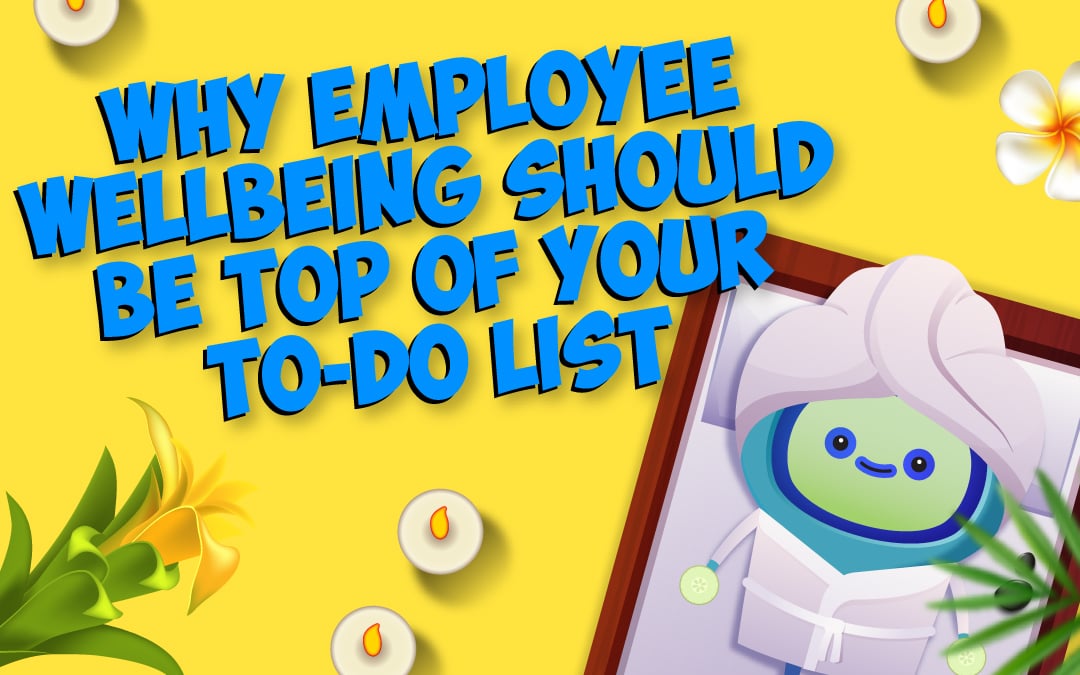Newly minted and growing businesses have a lot going for them. For anyone who knows what it’s like to be tangled in miles of red tape and battling the ‘it’s how we’ve always done things here,’ mentality, start-ups often present the refreshing opportunity to build everything from scratch.
So how do you create something from nothing? And more than that, real and sustainable value from very little?
Every small business is different, from the available budget and logistics, to the culture (both experienced and pursued) and the purpose and capacity of L&D within it. I work with L&D professionals who fully focus on curating existing content, others who oversee the entire employee experience and everyone in-between. Some have buy-in and credibility, others are struggling to be taken seriously on a daily basis. There’s a huge variety of opportunities and minefields to navigate.
What’s going to get things off to a roaring success in your business won’t necessarily look the same as in someone else's. But fear not, we can arm you with some key considerations as well as tried and tested approaches to get the cogs turning, even if it's just stimulating the right questions.
Get to know who you’re working with
Take the time to understand the people who are integral to your work. What do they care about, want to achieve and what’s getting in their way? I like to ask, (definitely stolen from somewhere), ‘If you had a magic wand and could change anything, what would you change?’ The answer might not give you an immediate L&D quick win. It could be their toddler sleeping through the night or better coffee in the office kitchen. But you’ve learnt something important which could be a relationship builder later on. Maybe you decide to catch Rob at the start of the day when he’s most alert or know a podcast which can help. Maybe you take Caroline out for excellent coffee when you catch up.
Forging strong relationships takes time, effort and investment. You can’t expect that people will immediately connect with your agenda and enthusiastically jump on board (this is rare, but of course brilliant). They’re also more likely to be honest, engaged and want to collaborate if you put the time in to get to know them first.*
*Worth a sidebar. Full disclosure – I sometimes find this really challenging. Trying to build rapport with lots of busy people, often remotely, can be a great test of social agility! Especially when you’re trying to sell mythical L&D because it doesn’t exist yet. Sometimes it’s pretty hard going - we’re all different and complicated and new businesses involve a lot of moving parts and uncertainty. BUT, where I have persevered, been patient and managed to get on the same page, it’s vastly impacted the support I’ve been given and the enjoyment I get from collaborating.
Look into the future
It’s time to do your homework. Put the business strategy front and centre on your reading list – understanding where the company is trying to go and its priorities for the year ahead is really powerful. I guarantee you that L&D will be integral to the vision, be it helping to upskill on a new product, building more inclusion into learning offering, supporting recruitment and HR* to attract and retain great people, or enabling the new sales team to fire on all cylinders.
It’s smart to align and a great way to demonstrate your value, as tempting as it may be to kick things off with a trending idea or passion project. It will also help drive meaningful conversations with your key stakeholders along the lines of, ‘I recognise x is really important, how can I help with this?’
If it’s near the end of year and/or the strategy is a work in progress, see if you can get involved. Gain insights on what each department views as vital to them and how all the pieces need to work together. Understanding (at a high level, I know you’re not made of time) the financials, people agenda, and even emerging tensions, can really inform your game plan.
*It’s a second sidebar! I’ve lost count of the number of talks I’ve attended to learn more about how to smash it in L&D, where the speaker says something like, ‘Work with your talent succession team, comms team and head of HR on this,’ and I’m like, ‘Huh, we don’t have any of those.’ And it can feel more than a tad disheartening and intimidating. So, I want to reassure you that you’re not alone, if like me, you’re basically all of those teams in one slightly terrified person. We don’t tend to hear as much from small businesses who are just getting going with a skeleton crew, but they all start with fewer people than is ideal, wearing many hats (which can also make things very interesting and fun). Which brings me swiftly onto…
Don't let 'great' be the enemy of 'good'
My mentor shared this advice with me last year, and if you’re trying to create everything from nothing (especially solo), it can serve as a very handy reminder. It’s tempting to aim for the clouds, to task yourself with landing it pitch-perfect on the first run and to feel like you need to get everything moving quickly
No L&D? No problem! We’ll do a training needs analysis, then a competency matrix, set up a coaching programme, lunch n’ learns, career progression plans, focused training for development points, performance management and a lovely jubbly reward scheme to compliment. Wonderful.
Well, it might be at the time, when you’re bursting with ideas and high on potential, but it can soon become an over-promise under-deliver situation where you’re always behind on your beautifully crafted plan and strreesssssseed as hell.
What I hadn’t really factored into my initial ambitious vision was the time required for others to contribute, reflect on and workshop changes with me. There were things outside of my control too, like shifting business priorities, people leaving, holidays, other new and more important projects. At times, it felt like I’d locked myself into a never-ending series of unfeasible deadlines. Thanks, past me.
If this sounds remotely familiar, here’s what I thoroughly recommend:
Think about quick wins alongside long-term projects – sometimes you can make something better easily, even if it’s not perfect – it’s a journey.
Set up little experiments and learn from them, iterating as you go, instead of raging ahead with an all singing, all dancing solution which might not be quite right after all.
Underestimate yourself – plan to deliver less than you think you can. This way, things can move forwards but hopefully not backwards. Think about it like if you struggle with travel anxiety; you head to the train station ridiculously early – it means you can weather unforeseen circumstances and keep yourself calm (okay, calmer). You’ll impress stakeholders with early delivery and have time to handle curve balls (the traveller analogy really falls down here as I don’t think the train driver is going to praise you, sorry).
Factor in time for people to digest and challenge projects, generous time. Rushing and nudging get quickly annoying for everyone involved, so give stuff room to breathe.
You won't please everyone
Okay, so you’ve got a grip on the unique context of your business. You’ve spent time getting to know everyone and thinking about what’s helpful and valuable to them. You’ve dedicated more hours to the business strategy than your own family (not recommended). And you’ve taken a realistic, kind-to-yourself look at what you can achieve. BUT, you’re still making mistakes and some aspects just aren’t working.
What are you doing wrong?
Everything and nothing probably. Everything because you’re in at the deep end and learning as you build. Nothing because missteps are a natural part of establishing anything new. Driving meaningful, sustainable change is a hard-won process (just take a look at the Change Curve if you’re sceptical).
And, some people just won’t get it – maybe it’s what you’re trying to do, maybe it’s how you’re going about it, maybe it’s them. If you’re coming up against resistance, it’s useful to try and take a step back and interrogate, think about what you could do differently and what’s really going on. But you will never be able to be all things to all people, all of the time. So, stay open to the possibility that there’s something to learn but cut yourself some slack too.
In the beginning, I took little things quite badly; perceived indifference, pushback, even well-meaning questions. It all felt so personal. It’s hard to sustain energy when you don’t have an L&D team behind you, to debrief with, to cheer you on. You need a hell of a lot of grit and self-motivation.
I’m getting better at hearing feedback. It’s a work in progress. The success of L&D doesn’t rest solely on the L&D person or function, and neither does failure or the need for improvement. Especially in a start-up, everyone is figuring it out as you grow, and it takes group momentum to move forward.
In other words, it will take more than just you to smash it out of the park and so it’s unlikely that the full force of any criticism is yours to bear, just because it’s targeted at learning.
One thing I did do early doors which helped was saying something to the whole business along the lines of, ‘At times, I will mess up, I will set something in motion and have to backtrack, and I’ll need your honesty and help to fix it.’ Alright, it likely wasn’t that eloquent, but it meant I gave myself a slice of public permission to trip up now and then. And that’s gold.
For more ideas and support, check out our range of blogs, webinars podcasts, and free resources. Plus, keep your eyes peeled for part two, which will cover delighting in data, developing real solutions to problems (not just applying plasters) and tips for reflection in your first year.




.png)
